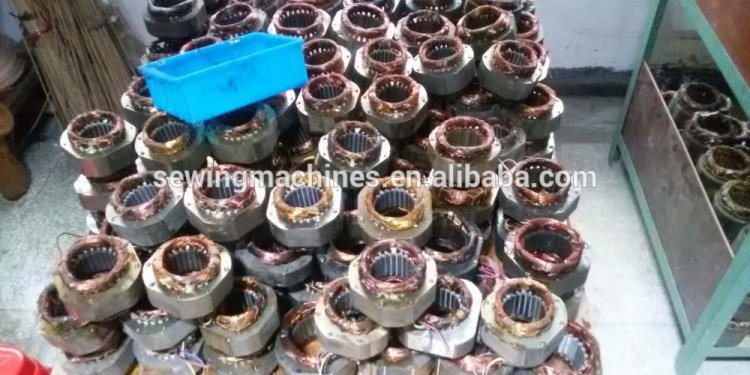
Clutch Motor for Industrial Sewing Machine
 A day or two ago, I got an innovative new Sewquiet 4000 servo-motor from Reliable Corporation. This motor is designed as a substitute for the standard clutch engine for professional sewing devices and it has both pros and cons when compared to previous design (the Sewquiet 3000) and clutch motors.
A day or two ago, I got an innovative new Sewquiet 4000 servo-motor from Reliable Corporation. This motor is designed as a substitute for the standard clutch engine for professional sewing devices and it has both pros and cons when compared to previous design (the Sewquiet 3000) and clutch motors.
The system weighs about 24 weight. It has the usual hinged installation framework for attaching on base associated with sewing dining table and tensioning the pulley belt. From the base regarding the engine is a tiny control field with a power switch, a ready light and a four-position speed control. On back is a switch that controls which course the motor rotates. The control field comes wired to connect into a 110V outlet. At the conclusion of the motor is a lever that connects to an ordinary treadle pole.
The speed control switch establishes the most notable speed associated with the motor. Setting # 4 (entirely counter-clockwise) yields a premier speed under load of about 4500 RPM. Setting number 3 provides a top rate of about 2500 RPM. Options no. 2 and # 1 are increasingly slowly. The actual speed is scheduled by depressing the treadle. Light treadle pressure provides excellent control of slow boosts to about (Im guessing, maybe not measuring) 1/3 of top speed. Past that point, motor-speed abruptly changes to top speed.
I've about four hours useful because of the engine after set up to my Juki DDL-8700, so they are early impressions.
What I like:
Unlike many servo motors, including its forerunner, the Sewquiet 4000 does not buzz at sluggish rates. Engine noise is minimal and more or less proportional to motor speed. Like all servo motors, and unlike clutch engines, it really is dead quiet you should definitely in motion. My Juki is now since peaceful since many household machines, whatsoever speeds.
 The Sewquiet 4000 features exceptional slow speed control, much better than most servo engines and greatly better than a clutch motor. Additionally much better than the standard household base pedal speed control. This can be definitely the best commercial motor I have ever skilled for slow information sewing.
The Sewquiet 4000 features exceptional slow speed control, much better than most servo engines and greatly better than a clutch motor. Additionally much better than the standard household base pedal speed control. This can be definitely the best commercial motor I have ever skilled for slow information sewing.
It is easy to adjust the “dead musical organization” of free treadle motion before you decide to get an obvious springtime force. You are able to it extremely foreseeable just how it responds when you initially place your base on the treadle, and just how far you have to hit the treadle to obtain the motor turning.
The thing I don’t like:
Whenever Sewquiet 4000 is turned off (using the ability switch or unplugging it), its control field maintains enough energy to sew another stitch or two. The predecessor Sewquiet 3000 failed to repeat this: down required down. This bothers me personally as a possible safety problem, since unlike a clutch engine there's no audible indication that powered down servo motor might have some “oomph” to it.
We labeled as dependable technical support relating to this. They immediately attempted a machine inside their center and in addition it had adequate extra power to sew a half stitch after becoming powered down. They will have obviously received no issues about it, nonetheless it bothers me.
The transition between low-speed and top-speed is very abrupt. And when you hold the treadle “just so”, you obtain speed surges between high and low speed which I discover extremely disconcerting. The effect is much like a rather grabby clutch, where you stand nicely sliding the clutch to get limited speeds then WHAM it locks up. Reliable tech support team verifies this is the designed behavior. For full-bore production sewing this is why good sense, but i do not sew at 4500 stitches each minute.
The precedessor Sewquiet 3000 had another knob which controlled how motor speed responded to treadle place (the “pickup” response). The Sewquiet 4000 has a fixed pickup that certainly takes some being employed to. After an hour or so of stitching up some examples, I became being employed towards pickup with less unforeseen changes to “hyper-drive”, but would however prefer a pickup that gave a hint in regards to the near-by change to full-speed.

















